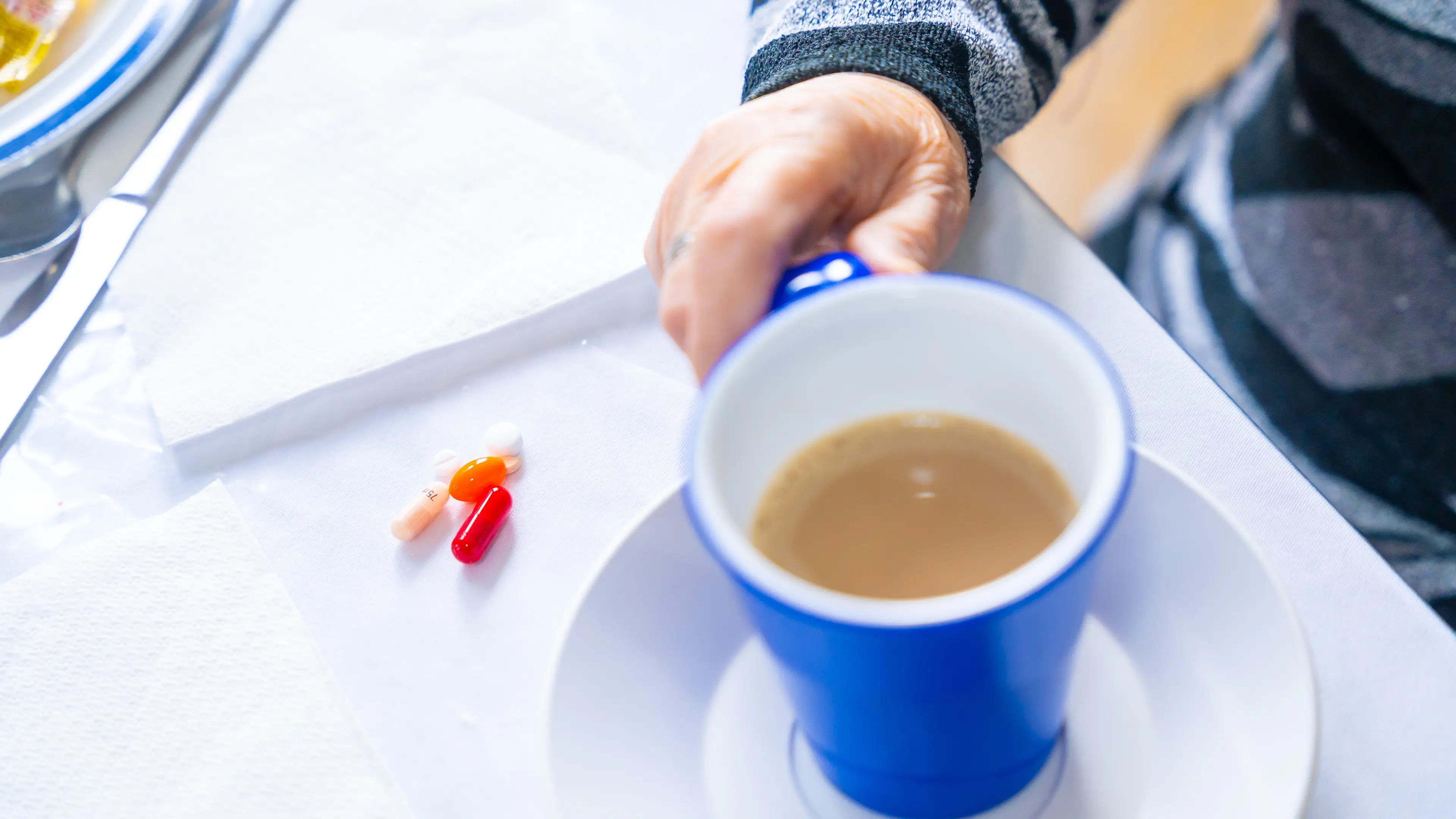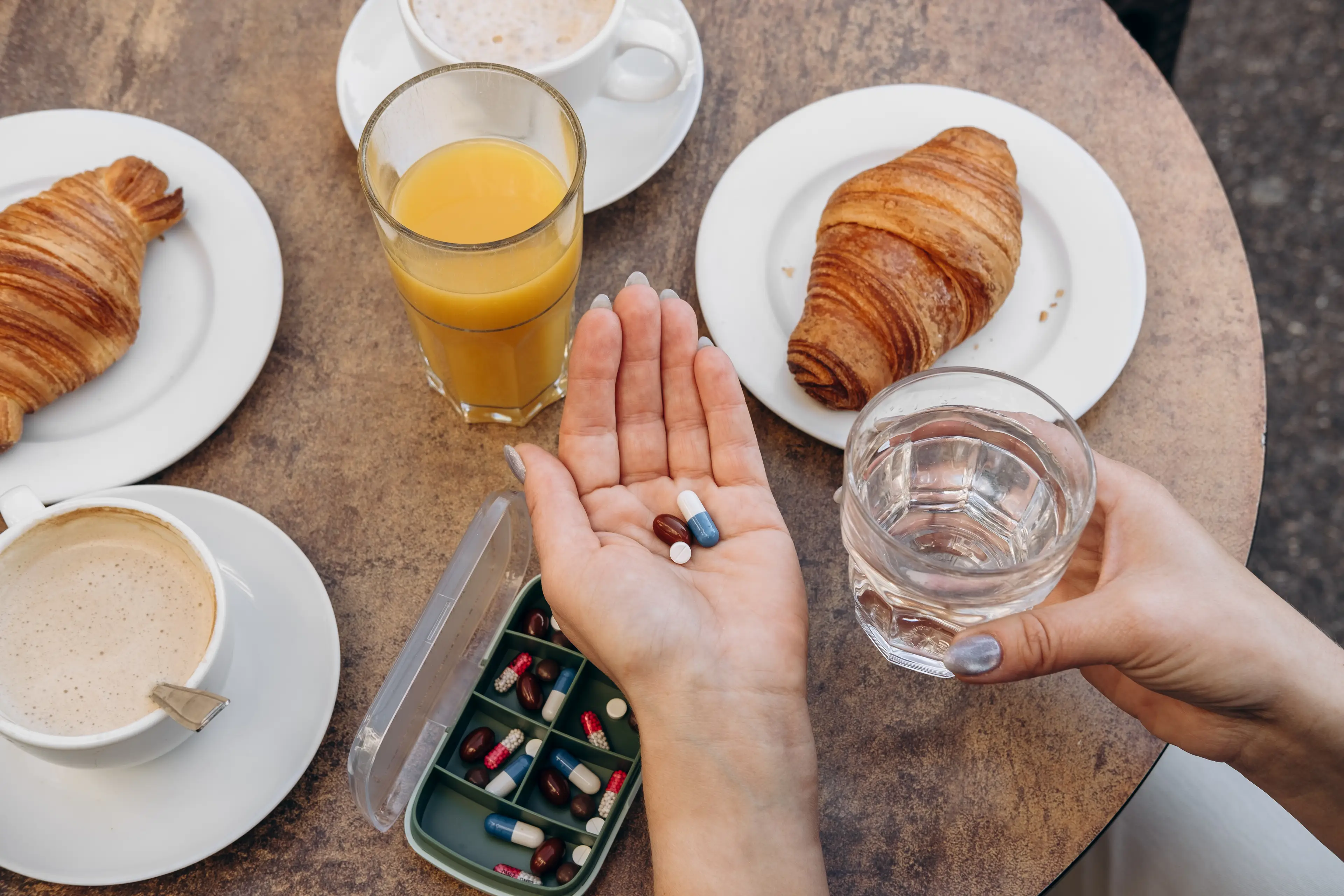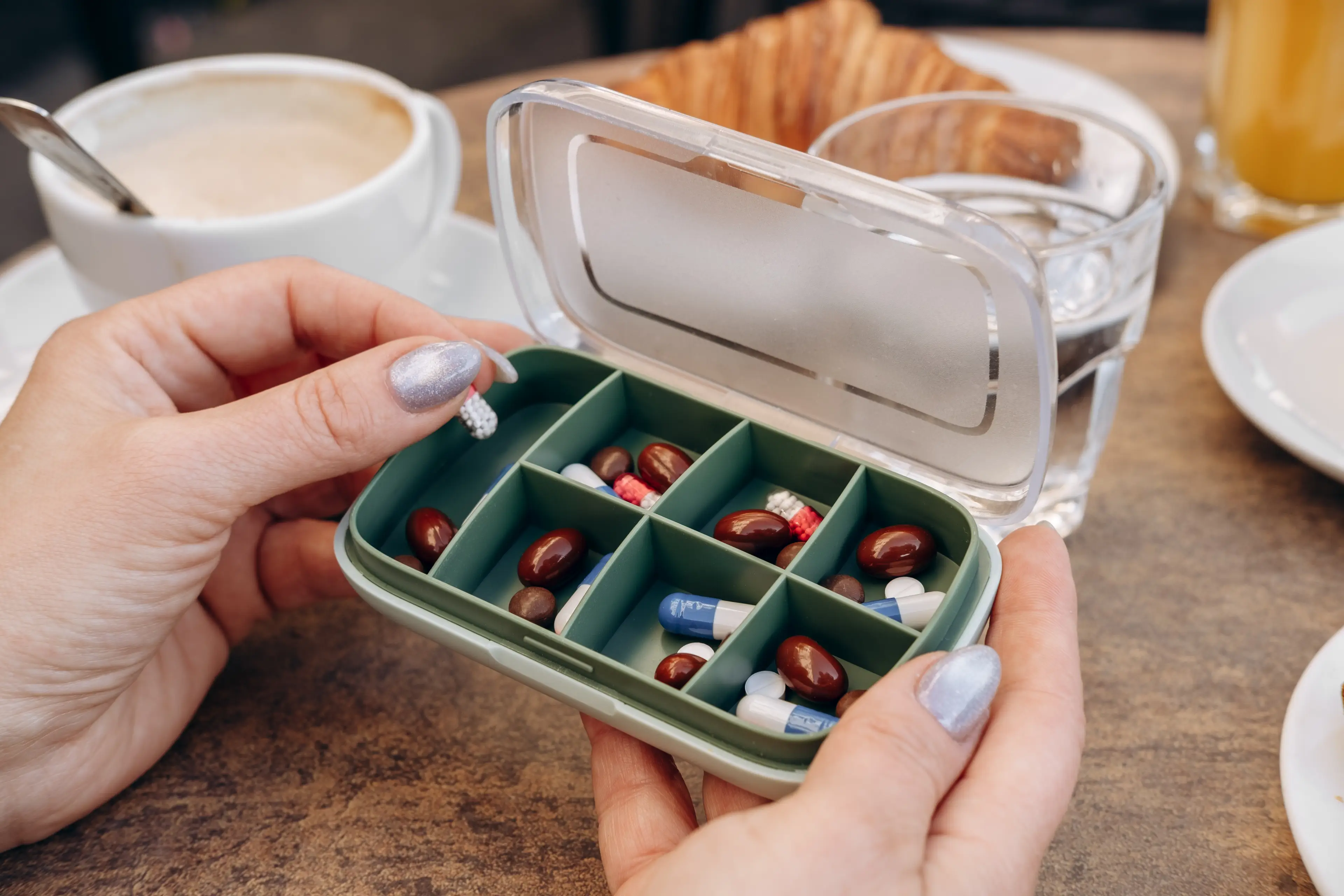
Love an espresso to wake you up or an iced latte mid-afternoon?
Maybe you're trying to be healthier ahead of the new year and have started adding vitamins to your shopping basket alongside those coffee machine pods.
If you're a coffee fiend, chances are you don't think twice about whether it could be causing havoc with your supplements.
It's fairly common knowledge that alcohol shouldn't be mixed with various medications and tablets, but coffee?
Advert
Before you take your next handful of vitamin and supplements and wash them down with a fresh pot of coffee, double check that none of them are on this list below.
You could be wasting your money, or worse, damaging your health in the long and short term.
Here are six of the most common supplements that your favourite caffeinated beverage could be causing problems with.

Iron and coffee don’t mix
Polyphenols found in coffee bind to iron, limiting the amount of the mineral your body can successfully absorb.
A previous study found that drinking coffee with iron reduced absorption by 54 percent. When breakfast was added to the mix, absorption was further lowered.
According to pharmacist Bo Wang, a heavy caffeine habit could potentially impact bone and mineral health.
The Mayo Clinic recommends you consume no more than 400mg of caffeine per day.
That roughly works out as four cups of brewed coffee, 10 cans of fizzy pop, or two ‘energy shot’ drinks.
Drinks such as tea and matcha can also impact your iron uptake.
Experts recommend taking iron with vitamin C to increase the absorption, so switching coffee for orange juice could be better.

Calcium and coffee shouldn't be taken at the same time
Like with iron, coffee can majorly interfere with your body’s ability to absorb calcium from supplements and from food, too.
Coffee is also considered a diuretic, a substance that increases the production of urine, with some scientists suggesting the substance can take calcium out of your body.
If you want to take calcium and still drink your morning Starbucks, it's best if you space your leave a few hours between swallowing your supplements and sipping on your hot drink.
Coffee may impact your magnesium supplements
You should avoid taking your supplement pills with magnesium, says Health.com.
This is because your body may get rid of the mineral quicker than you would like via excretion or urination, possibly leading to symptoms such as muscle cramping or fatigue.
Coffee actually contains a small amount of magnesium, but drinking enough of it actually causes a net loss in the body.

Vitamins D and coffee should be avoided
Experts suggest that pairing coffee with D vitamins and other water-soluble vitamins may possibly prevent you from absorbing the nutrients and may perhaps encourage your body to get rid of them.
Research has also demonstrated that the higher the level of caffeine, the more it interferes with vitamin D absorption.
The study suggested that caffeine did this by reducing the expression of vitamin D receptors on osteoblasts in the body, which are the cells responsible for producing bone.
When combined with lower calcium uptake, this can cause painful problems later in life like osteoporosis and impact bone density, as vitamin D is vital for improving the absorption of calcium.

Coffee also prevents the absorption of Vitamin B
There are several different types of B vitamin, so look for these on the back of your supplement bottle.
- Thiamine
- Folate
- Folic acid
- Biotin
- Niacin
- Riboflavin
These are also water soluble, the same as vitamin D, and the diuretic qualities of coffee can lead to them being flushed out.
Zinc and coffee is a waste
Health stated that coffee and zinc may not be the best combination, because drinking a cup of the good stuff can sometimes interfere with zinc's bioavailability.
This could also be down to the effect coffee has on vitamin D absorption, as vitamin D helps you absorb zinc, as per the outlet.
Topics: Drinks